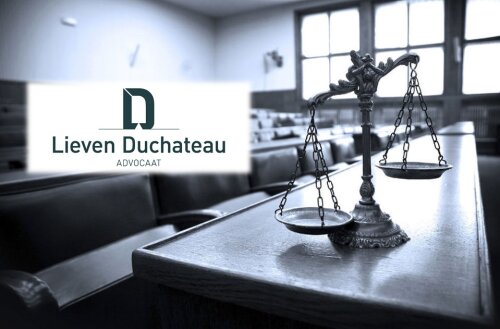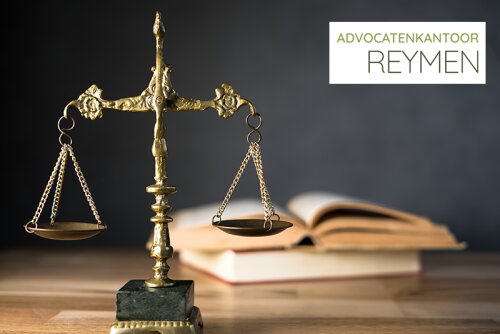Best Oil, Gas & Energy Lawyers in Sint-Truiden
Share your needs with us, get contacted by law firms.
Free. Takes 2 min.
List of the best lawyers in Sint-Truiden, Belgium
About Oil, Gas & Energy Law in Sint-Truiden, Belgium
Located in the heart of the Limburg province, Sint-Truiden is a vibrant city that is seeing growing interest in renewable energy and efficient resource management. Although traditionally Belgium’s energy needs have relied heavily on imported oil and natural gas, recent European and national legislation is driving a transition toward greener energy sources, such as wind, solar, and bioenergy. In Sint-Truiden, local initiatives and investments reflect this shift, with authorities and private entities increasingly participating in both small-scale and larger energy projects. The city’s unique blend of agricultural and urban interests also creates specific challenges and opportunities in the energy sector.
Why You May Need a Lawyer
Legal expertise in Oil, Gas & Energy is essential for navigating the complexities of this highly regulated field. You may require a lawyer in various situations, such as:
- Obtaining permits and approvals for energy projects, including solar panels or wind turbines.
- Handling disputes over land use or property rights related to energy infrastructure.
- Negotiating contracts for the sale or purchase of energy resources or participating interest in energy projects.
- Ensuring compliance with environmental regulations and energy efficiency standards.
- Dealing with compensation or expropriation claims for infrastructure development.
- Navigating tax incentives and subsidies for renewable energy investments.
- Understanding the impact of zoning rules on energy installations.
- Assisting with mergers, acquisitions, or joint ventures in the energy sector.
Local Laws Overview
The legal framework for Oil, Gas & Energy in Sint-Truiden is shaped by a combination of international, European, federal, and regional (Flemish) legislation. Key aspects include:
- Permitting and Licensing: Energy installations typically require permits from local and regional authorities, especially if they impact land use, the environment, or public safety.
- Environmental Compliance: Operators must adhere to strict environmental standards related to emissions, waste management, and land restoration. Failure to comply can result in fines or project shutdowns.
- Zoning Regulations: Local zoning plans determine where energy infrastructure, such as wind farms or solar plants, can be located.
- Renewable Energy Promotion: There are incentives and subsidies at both the regional and federal levels for investing in renewable energy, which can significantly affect the legal and financial landscape for projects.
- Consumer Rights: Laws protect the rights of consumers and businesses in energy contracts, including price transparency and dispute resolution mechanisms.
- Expropriation Procedures: The government may expropriate land with compensation for public energy projects, but there are strict rules and procedures to follow.
Staying informed about the overlapping requirements from local, regional, and national authorities is crucial, as non-compliance can have serious legal and financial consequences.
Frequently Asked Questions
What permits do I need to install solar panels on my property in Sint-Truiden?
Typically, small-scale residential solar installations do not require complex permits, but larger or ground-mounted installations may need urban planning authorization from the local municipality and compliance with regional building codes.
How does Belgium regulate oil and gas exploration and production?
Belgium relies mainly on imports, so there is little domestic exploration or production. Any such activities would require federal and regional permits, environmental impact assessments, and strict compliance with safety laws.
Can my agricultural land in Sint-Truiden be used for energy projects?
It depends on local zoning rules, the size of the project, and the intended use. Converting agricultural land to energy use (like solar farms or biogas plants) often requires specific permits and environmental assessments.
Are there grants or incentives for installing renewable energy systems?
Yes, both the Flemish Region and the federal government offer subsidies and tax incentives for energy efficiency measures and renewable energy generation. The availability and terms can change frequently, so up-to-date advice is essential.
What happens if my property is needed for a public energy project?
The government can initiate expropriation proceedings, but you are entitled to fair compensation and may challenge the decision in court under certain circumstances.
How are disputes between energy suppliers and consumers handled?
Disputes can be brought before the VREG (Flemish energy regulator), the Ombudsman Service for Energy, or civil courts, depending on the nature and severity of the dispute.
Do energy projects require environmental impact studies in Sint-Truiden?
Major energy projects, particularly those involving significant land or resource use, must undergo comprehensive environmental impact assessments before permits are granted.
Is landowner consent always required for underground pipelines or power lines?
While landowner consent is important, certain public interest projects can proceed through compulsory easements or expropriation, regulated by strict legal procedures and compensation requirements.
Can local communities participate in energy projects?
Yes, local communities can take part through cooperative models encouraged by both the city and regional authorities, enabling shared ownership or benefits from local renewable energy projects.
What is the role of the local municipality in regulating energy projects?
The Sint-Truiden municipality oversees zoning, urban planning, and issuing local permits, and also plays a role in developing and supporting local sustainability initiatives.
Additional Resources
For legal advice or information on Oil, Gas & Energy matters in Sint-Truiden, consider reaching out to:
- VREG (Vlaamse Regulator van de Elektriciteits- en Gasmarkt) - The Flemish energy regulator oversees market rules, consumer rights, and licensing.
- FPS Economy, SMEs, Self-Employed and Energy - The federal body in charge of national energy policy and market regulation.
- Municipality of Sint-Truiden Urban Planning and Environment Department - For local permit procedures and regulations.
- Ombudsman Service for Energy - Mediates disputes between consumers and energy suppliers.
- Agentschap Innoveren & Ondernemen (VLAIO) - Provides guidance and incentives for energy innovation and entrepreneurship in Flanders.
Next Steps
If you are considering an oil, gas, or energy project in Sint-Truiden, or if you are facing a legal issue connected to energy use, production, or land rights, the following steps are recommended:
- Gather all relevant documentation regarding your query or project, including contracts, permits, correspondence, and any official notices.
- Contact a qualified lawyer specializing in Oil, Gas & Energy law, preferably with experience in the Flemish region’s specific legal context.
- Seek an initial consultation to assess your legal position and understand the procedures, risks, and opportunities involved.
- Stay informed by reviewing updates from the local municipality and Flemish government, as regulations can change frequently.
- Engage with local stakeholders and authorities early, especially for projects with a community or environmental impact.
Prompt legal advice can save costs, prevent disputes, and improve the success of your project or legal position.
Lawzana helps you find the best lawyers and law firms in Sint-Truiden through a curated and pre-screened list of qualified legal professionals. Our platform offers rankings and detailed profiles of attorneys and law firms, allowing you to compare based on practice areas, including Oil, Gas & Energy, experience, and client feedback.
Each profile includes a description of the firm's areas of practice, client reviews, team members and partners, year of establishment, spoken languages, office locations, contact information, social media presence, and any published articles or resources. Most firms on our platform speak English and are experienced in both local and international legal matters.
Get a quote from top-rated law firms in Sint-Truiden, Belgium — quickly, securely, and without unnecessary hassle.
Disclaimer:
The information provided on this page is for general informational purposes only and does not constitute legal advice. While we strive to ensure the accuracy and relevance of the content, legal information may change over time, and interpretations of the law can vary. You should always consult with a qualified legal professional for advice specific to your situation.
We disclaim all liability for actions taken or not taken based on the content of this page. If you believe any information is incorrect or outdated, please contact us, and we will review and update it where appropriate.










